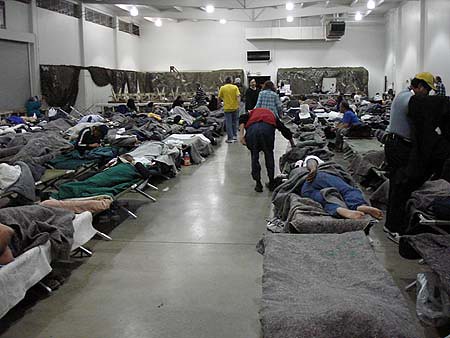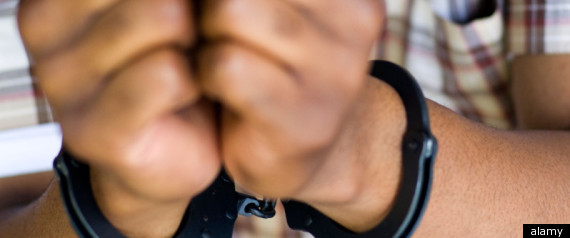"Nonviolence as a mass political strategy was never part of our traditional ways of being on Turtle Island. We laid siege to forts, we picked up arms, we mounted riots and uprisings and full scale guerilla wars against colonial governments, militaries, corporations. We ate the hearts of our enemies. We did not curry favour from rich white men, we fought and killed them."
Posted on:
Indigenous Women of the Movement: Why We Wrote the “Statement of Apology” We Wish Had Been Written By the Defenders of the Land Organizing Committee
April 28, 2011
It has been seven days since we published a satirical “
statement of apology“, from the organizing committee of Defender’ of the Land. A group of women and grassroots land defenders wrote the statement, because our voices had been silenced. We feel that what we have to say here must be heard, and so we will continue to speak.
In Spring 2010, we blocked consensus of a “June 24th Day of Action” call-out for a march during the G20 week in Toronto. We were ignored and silenced. That march was the only indigenous-led event for that important week of public dissent. We had one day for our voices to be heard in the streets. We believe in consensus as a traditional way of guarding against elitism and privilege in our communities, and we believed that by blocking consensus, especially as a group of native women, we would at least be given the chance to speak and be heard. Not only were we ignored and silenced, but the organizing committee blocked communication between us and several native communities. We were told they were “afraid” of us, as though indigenous peoples need protection from each other when our voices speak different opinions.
We blocked consensus because we felt that the call out for the “June 24th Day of Action” (which was sent out by Defenders of the Land) would criminalize and disempower grassroots land defenders and erode our autonomy to defend ourselves and our land and communities. We felt that the heavy use of “non-violence” wording was a slippery slope toward co-operation with the Canadian government and police…who also desire us to be “non-violent” so that we are less of a threat to the realities that we face daily: our children being stolen, our lands being exploited for profit, murder and brutality at the hands of police and racist settlers, the disappearance and murder of thousands of indigenous women.
We felt that this was not an issue of semantics, that this was deliberately being taught to our peoples, our youth and our communities by the interests of government and corporations, who we began finding out more and more, were actually helping to fund well-paid activists who ran well-funded workshops, training and retreats on “non-violence” and “civil disobedience”. Some of this was traced back to funding which came from “ethical oil” strategies, and that’s when we started realizing the sickening accuracy of our premonitions.
The June 24th “Day of Action”, although well attended and successful in bringing people together to demonstrate resistance, was also extremely compromised. Undercover police and informants who came to the organizing meetings were “justified” in being there, people were told that because of “trouble makers”, we should cooperate with the police. These “trouble makers” were several indigenous people who were standing up and questioning the way the organizing was being increasingly straitjacketed.
“Non violence” was used to narrow the parameters of our ability to speak and express our struggle: we were barred from wearing camoflage, barred from wearing masks, barred from carrying the Unity flag or from any “warrior” images or symbols. On the day of the march, undercover police were permitted by the organizers to infiltrate the march, and those of us who had questioned the organizers were told that we would be turned over (by the march’s own security team) to the police.
That has been our experience and involvement with the organizing committee of the Defenders of the Land, a network that began with the dream of a woman: a clanmother and Elder from one of the most exploited communities on Turtle Island which has been devastated by mercury poisoning and logging: Grassy Narrows.
We believe in honouring the dreams of women, in freeing ourselves from judgement and bias, decolonizing our minds and our hearts. We believe in being action-oriented, not paper-oriented. We don’t need Canada’s approval or consent, and we don’t need government or corporate funding. We have always had what we will always need: the Kaianerenkowa, the Medicine Wheel, our teachings, our clan systems, our languages, our ceremonies.
We can empower ourselves, we don’t need to wait for an NGO or a suit to tell us how to feel empowered. We aren’t the ones who need “non violence training”, the ones who need to stop using violence are the ones in power: police, government and corporations.
We absolutely believe in non-violence: when the cops lay down their weapons, the mining and logging companies abandon their industries, when the government returns the land to the people who belong to her, when racist settlers lay down their racism and patriarchy, when we vomit up the internalized racism from generations of abuse and torture at the hands of the government and can feel good in our own skin, can feel loved by each other, comforted, proud of and nourished by our beautiful brown skin, instead of vying for the attention of white thighs, settling for the white lie.
When the violence against us stops, maybe then we can begin to return to a time of peace. But to adopt a strategy of non-violence during a time of war is suicide: and we already have enough children and youth killing themselves because their innate resistance to genocide is stifled by white Canadian education, media, foster homes, jails and poverty food. Native children and youth do not need to be taught how to defend themselves: they need to be given the freedom to do what their spirits already understand is necessary.
Nonviolence as a mass political strategy was never part of our traditional ways of being on Turtle Island. We laid siege to forts, we picked up arms, we mounted riots and uprisings and full scale guerilla wars against colonial governments, militaries, corporations. We ate the hearts of our enemies. We did not curry favour from rich white men, we fought and killed them.
The most successful military campaign against Amerikkka was waged and won by the Oglala Sioux at Little Big Horn in 1876 and in 1973, they defended it again against the FBI, military and goon squads. Our people were often were masked in ceremonies and in battle, just look at the indigenous Zapatista movement–”masking up” is a practice rooted in indigenous movements and indigenous resistance.
Non-violence may be one strategy, and true to our nature, if it works, we’ll use it. If it doesn’t, we won’t. The bottom line is that we defended our land and our families with whatever we could. We owe our very existence to our ancestors who resisted total extermination and genocide by fighting back, and we will continue to honour those who gave us life by resisting the ongoing colonization of our lands and our peoples. If we have breath, we owe each one not only to our ancestors but to the land they fought and died to protect, and to the next seven generations.
-Indigenous Women of the Movement









